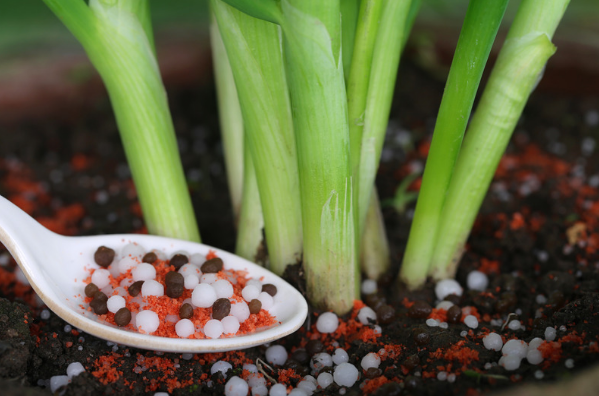Finding the right bug control for protecting your garden can be a challenge especially if you want to use an organic pest control method. Insects, bugs, and rodents can cause severe damage to your garden plants. Using insecticide to target these pests isn’t always the most cost-effective and environmentally friendly way of saving your garden.
Over the years, homeowners have been keen to embrace natural pest control techniques such as using homemade insecticides and growing companion plants for natural organic pest control. The latter is often more practical and effective since you don’t have to prepare any insecticides; rather, the naturally growing plants deter pests all year round with little effort on your end.
If you are keen to control pest infestation in your garden without polluting the environment, we’ve rounded up a list of ten plants you can grow alongside your fruits, vegetables, or flowers. So, if you’re planning your garden, continue reading the learn about keeping pests out of your garden naturally.
10 Organic Pest Control Methods
Marigolds

Marigolds are sun-loving annuals that have a strong scent, which most insects and pests cannot tolerate making it an organic pest control method. According to NCBI, marigolds have an airborne substance, limonene, that repels flies, bugs, and even mosquitoes. This makes marigolds an excellent companion plant you can grow around your garden for organic pest control armor in your garden.
Mint Plants

Mint plants are perennial and highly fragrant herbs commonly used as spices. These herbs’ smell can deter all types of biting insects and are best grown as organic pest control companion plants. Some of the common mint plants include peppermint, apple mint, wild mint, and spearmint. Mints spread relatively fast, and you must plant them in pots to control their population.
Rosemary

Rosemary is a fragrant evergreen plant that repels mosquitoes and other insects, thanks to the two powerful organic pest control natural insecticides, Camphor, and 1-8-cineole. Growing rosemary bushes around your garden will protect your garden plants from common insects and bugs.
Onions are a Great Organic Pest Control

Everyone loves onions and they are one of the most common organic pest control companion plants grown alongside carrots and tomatoes. Onions have a strong smell that repels crop pests such as aphids and carrot flies. A rule of thumb is to surround your plants with onions or to intercrop with your other plants, and you will notice a reduction of insects and flies.
Garlic

Garlic has a strong scent that deters several insects and is the perfect organic pest control for your garden. The essential oils found in garlic have repellent properties, and planting garlic as an organic pest control companion plant can prevent bugs such as aphids and beetles from damaging other crops. The strong odor from garlic can also keep out some rodents such as moles and voles from burrowing into your garden.
Black Pepper

Black pepper is a flowering and climbing perennial plant cultivated for its fruit, peppercorn. This plant is native to southern India but has been introduced to various parts of the world, including Europe and North America. Black pepper is often grown as a companion plant to fruits and vegetables, where they help repel common garden pests such as aphids, thrips, and spider mites.
Cayenne

Cayenne pepper plants are annuals that require some heat and well-drained soils. When they reach maturity, these plants have a strong smell that can keep away mice, roaches, ants, and bugs. The main ingredient that acts as a repellent in cayenne pepper is capsaicin, which has also been shown to repel cats, insects, and mites.
Catnip

Catnip is a perennial plant that belongs to the mint family and has a naturally occurring repellant, nepetalactone. While this active compound attracts cats, it repels insects such as mosquitoes and flies found in cattle feedlots. Catnip herb is spread by seed, and it grows best in well-drained soils and adequate sun. To prevent it from spreading all over your garden, you should plant it in pots or/and remove the flowers once they begin to seed.
Lemongrass

Lemongrass is an oil plant originating from the world’s tropical and subtropical parts – Asia, Australia, and Africa. These plants have now been introduced into North America and Europe, where they do well around summer. Lemongrass contains geraniol, neral, and citronellol, which are natural repellents against mosquitoes, flies, ticks, and maize weevils.
Lavender

Lavender is a perennial flowering plant with a moderate to soothing scent often used to treat anxiety and insomnia and in fabric softeners. The same smell that’s quite useful to humans repels mice, beetles, moths, mosquitoes, and flies. You can plant lavender around your garden or border your fruits and vegetables to keep away rodents and insects in your garden, year after year.
Closing Comments
By planting a couple of the above plants in your garden, you will effectively keep out pests and bugs – from rats and mice to mosquitoes, flies, and beetles. How effective these plants are, depends on how you incorporate them into your garden. For instance, if you use them to border your flowering plants and edibles, insects and rodents will be forced to hunt elsewhere.
If rodent infestation is more severe and requires a more sophisticated control strategy, working with a rodent control company could be a better option. Here, the company will conduct a thorough inspection to identify and eliminate the conditions attracting rodent activity in your garden.
If you have any questions or suggestions, we’d love to hear from you in the comments below. Also below, you will find links to more fantastic articles about ALL things DESIGN for your home or business.
Images Courtesy of Canva.
Other Posts You Might Enjoy:
4 Tips to Turn Your Backyard into a DIY Farm
Why Adding a Pond to Your Home’s Exterior is a Wise Move





